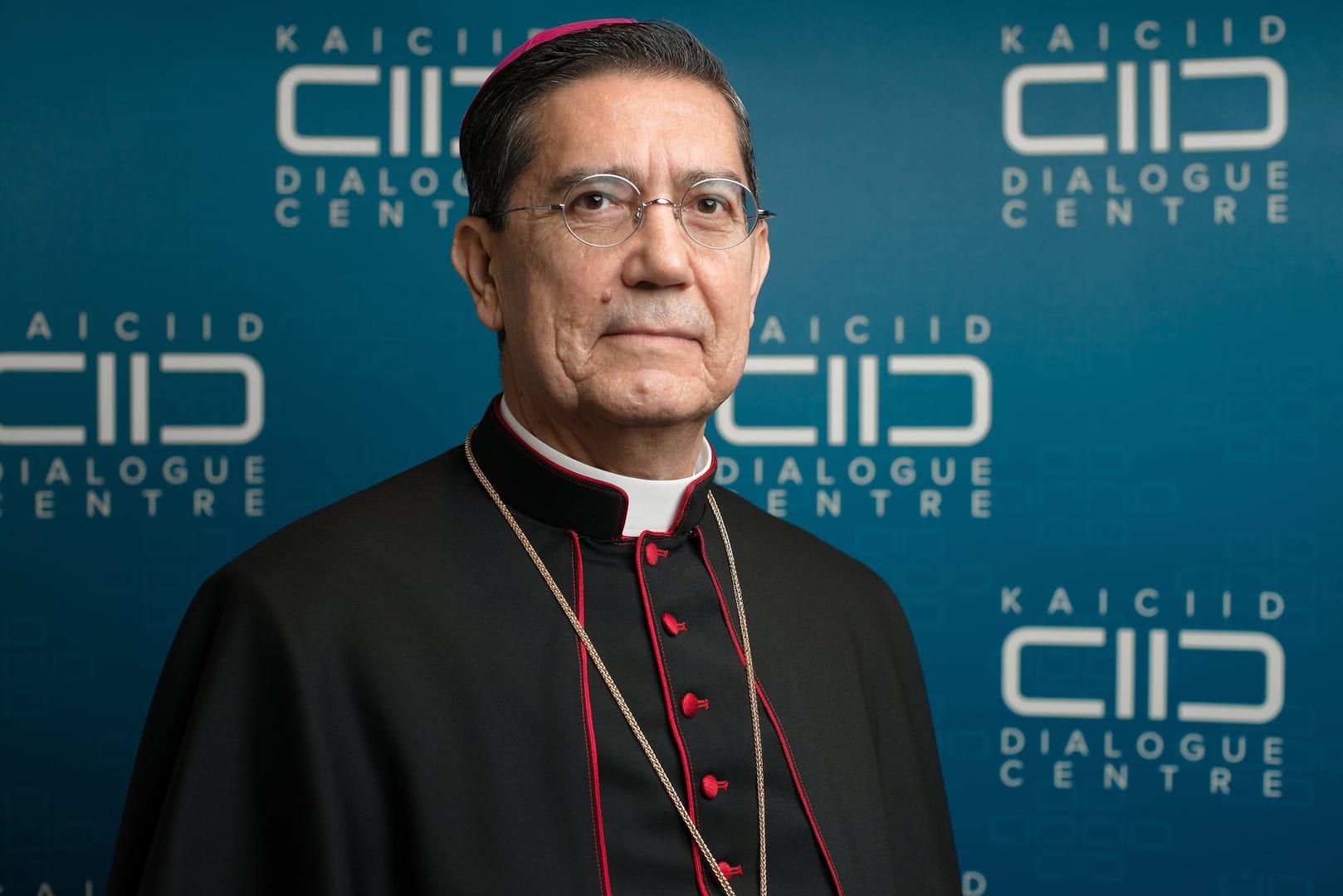ROME — The surprising thing about Pope Francis’ encyclical on human fraternity was not its affirmation that all people are brothers and sisters, but the reaction of people who found it hard to believe a pope would say that, said Cardinal Miguel Ayuso Guixot, president of the Pontifical Council for Interreligious Dialogue.
“If the world is finding out just now that we are brothers and sisters, we are in trouble! Something is wrong. In the situation of confusion, fear and emptiness we are plunged in, we must go back to the roots of our own faith,” the cardinal said in his keynote address to a conference in Rome.
Sponsored by the Jesuit journal, La Civiltà Cattolica, and the Berkley Center for Religion, Peace and World Affairs at Georgetown University, the conference Nov. 8-9 marked the first anniversary of the pope’s encyclical, “Fratelli Tutti, on Fraternity and Social Friendship,” and was designed to explore “the implications of a culture of encounter for the future of intercultural and interreligious dialogue.”
In his encyclical, “Pope Francis has simply reiterated and reminded us once again of a truth as old as the world which is at the root of our faith: We are all brothers and sisters,” the cardinal wrote in his text for the event.
That truth, he said, obviously applies to “our brothers and sisters of other religious traditions, not only as objects of our love, but as companions with whom we take the first steps away from the walls built out of fear and ignorance.”
“Together we can try to build bridges of friendship that are fundamental for the good of all humanity,” the cardinal said. “Fraternity, insofar as it comes from above, from the one God, is universal and generates brothers and sisters rather than partners. Therefore, fraternity tends to erase the natural and historical borders separating individuals and peoples.”
The obligation of love and kinship that all believers in God should feel must be translated into solidarity, he said. “Fraternity is the most effective stance against our ‘throwaway culture,’ which crushes and rejects the poor, causing them to die of hunger and injustice.”
Interreligious dialogue has an obvious role to play, Ayuso said. “In today’s world, where God is tragically forgotten or his name is abused, people belonging to different religions are called in solidarity to defend and promote peace and justice, human dignity and environmental protection. We must offer our collaboration to the societies where we live and share with all our common values and deepest beliefs concerning the sacred and inviolable character of life and of the human person.”
Sultan Al Remeithi, secretary-general of the Muslim Council of Elders, which is based in Abu Dhabi, told the conference that the Muslim values of “acquaintance” and “righteous and pious cooperation” fit in with the pope’s vision and can promote “understandings that bypass ignorance (and) division and transform physical meetings such as this into opportunities to open doors of cultural acquaintance between us.”
“There is no doubt that successive world events and crises have emphasized our desperate need for human fraternity,” he said.
John Borelli, Georgetown’s special assistant to the president for Catholic identity and dialogue, noted at the conference that “Fratelli Tutti” is “the first major papal document, the first encyclical or apostolic letter after the Second Vatican Ecumenical Council arising primarily from interreligious experiences” — the pope’s meeting in Abu Dhabi in 2019 with Egyptian Sheikh Ahmad el-Tayeb, grand imam of Al-Azhar, and their signing of a document on human fraternity and interreligious dialogue.
“‘Fratelli Tutti,’ issued nearly 55 years after the close of Vatican II, gives us in encyclical format a confirmation of Vatican II’s teachings on interreligious dialogue, a re-confirmation of the de facto religious pluralism that is acknowledged in the document ‘Nostra Aetate’ of the council, and a pivot, a re-direction and a new focus for the effectiveness and strength of interreligious experience for our shared planet and human journey,” Borelli said.












